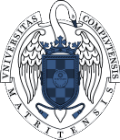The Center has been granted with a new MEG system in this call, with the grant code EQC2021-007677-P, and it will be installed during the first quarter of 2023. We want to thank the Spanish Ministry of Science for its trust on us.
We will leave this page online both for archival purposes and as a way to thank both those high-level scientists supporting us, listed at the bottom of this page, and the Spanish the Ministry of Science. Thanks to them, the Center will continue generating high level science in the area of neurosciences.
Magnetoencephalography (MEG) is a functional neuroimaging technique capable of directly measuring the subtle magnetic fields (10-15 Tesla) derived from the electric currents taking place in the brain during any human activity, with a high spatial resolution and in real time. This equipment consists of 306 sensors (204 planar gradiometers and 102 magnetometers) that cover the cranial convexity, registering the electrophysiological activity of the brain with superior resolution in both time and frequency. MEG is a completely non-invasive and innocuous technique for human beings, just registering the electrophysiological activity that the brain naturally emits.
This singular equipment is installed in the most important universities, hospitals, and research centers across the Globe, and it is a crucial tool in disentangling the organization of brain functional networks. Furthermore, in addition to its fascinating research applications, MEG is also used to identify characteristic neurophysiological alterations in different neurological and psychiatric disorders. Specifically, MEG is approved for clinical use in epilepsy patients and for performing the pre-surgical functional mapping in patients in need of partial brain resections due to lesions in their brain tissue.
The team of researchers behind the LNCyC has been managing this type of equipment for more than 20 years, it is the more experienced in Spain (with experience in 2 different MEG systems) and has gained a first-level international reputation. The current MEG equipment installed in Madrid has surpassed its useful-life period and it is technologically obsolete. The supplying company does not offer technical support since 2019, and we estimate that the system will not be able to properly function beyond the year 2022.
The activities related to research and education of next-generation researchers, the synergies across Spanish laboratories and the prestigious international collaborations, and the clinical activities that drastically improve the outcome of brain surgery that have been developing thanks to this technology, all of them depend on the proper functioning of the equipment. An abrupt stop in this service due to a failure beyond repair of the machine that would prevent a smooth and planned transition between the current equipment and the new one, would imply important issues and delays in all the activities in this service, affecting all users (from students to patients). Hence, the acquisition of a new MEG equipment it is of utmost importance, since this would guarantee the continuation of the usual scientific and clinical services, promoting the advance of Spanish scientific communities related to the neuroscience, neurology, neurosurgery and psychiatric fields.
Because of this, the LNCyC has decided to apply for the current call for grants aimed to fund the acquisition and renewal of scientific infrastructure (Infraestructuras Científicas y Técnicas Singulares (ICTS)) by the Spanish Ministerio de Ciencia e Innovación in the year 2021. Our proposal includes the renovation of our system, already obsolete, and its substitution by the new model of the same company. This will warranty the continuity of the work in the laboratory for an estimated period of 15 years, also allowing for the continuation of the current projects, as both systems are completely compatible, and their data fully comparable.
Letters of support from the international scientific community
During the elaboration of the aforementioned proposal, some of our collaborators have decided to publicly show their support and their alignment with the LNCyC in the needs presented in it:
Dr. Richard Henson, Medical Research Council University of Cambridge, UK (PDF).
Dr. Ira Haraldsen, Oslo University Hospital, Norway (PDF).
Dr. Ernesto Pereda, Universidad de La Laguna, Spain (PDF).

